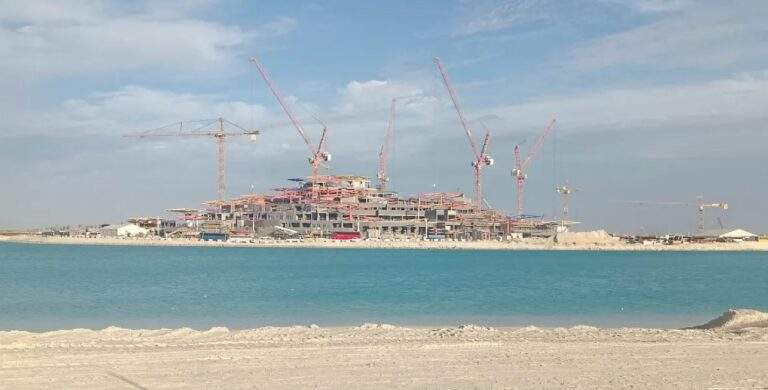Transforming the built environment in the Middle East after the PwC-Dar partnership
The Engineering Consulting House and prominent professional services company PwC have announced
a strategic partnership to address the issue of sustainability in the built environment in the Middle East.
The common goal was to help the region’s net zero agenda, reflecting a shared vision.
Through a shared vision in support of the net zero agenda in the Middle East,
PwC and Engineering Consulting House (Shaar & Partners) – Dar – have announced strategic
cooperation to drive sustainable solutions in the regional urban environment.
The partnership will combine BWC Middle East’s consultancy expertise with Dar’s,
In planning, construction and high impact infrastructure projects across the Middle East, Africa, Asia and Europe.

While you will benefit from the advisory expertise of PwC Middle East in the fields of sustainability, finance and emerging technology,
Combined with Dar International’s expertise as a leading built environment and engineering consultancy, to provide climate-friendly development solutions to its clients.
Together, the companies will strive to provide solutions that bend the carbon curve in the built environment.
It enhances the livability of cities and accelerates economic performance for regional investors, governments and communities.
Designing connected buildings in a sustainable environment
Commenting on the strategic collaboration, Hany Ashkar, Senior Partner in the Middle East, PwC Middle East, said:
“We believe that well-functioning, connected buildings are at the heart of the goals and aspirations of any leading knowledgeable and sustainable city.”
He added, “Our partnership with Dar Al Handasah,
which has led many award-winning sustainability projects globally across key horizontal and vertical infrastructure,
It will leverage its unique expertise to deliver innovative solutions to the region’s most complex engineering and design needs,” declared.
The built environment contributes to 75% of annual global greenhouse gas emissions.
Traditional buildings and constructions alone generate nearly 40% of the solid waste in the sector.

Insights from MEED Projects’ regional project tracker show that over $2 trillion in construction and infrastructure projects,
It is being planned and is underway in the Middle East,
providing ample opportunity to instill greater sustainability in the region’s built environment.
Dr. Yahya Anouti, partner and responsible for Environmental,
Social and Corporate Governance, Strategy and the Middle East, said:
“The new wave of regional investment in the industry over the next decade represents a once-in-a-lifetime opportunity
to move away from traditional, labor-intensive technologies and reimagine the region,
To become a hub for innovation and start-up in the field of sustainable construction,
with the ability to pioneer new materials and construction technologies that enable the region to become an export hub.”
A promising area in the field of sustainable construction
Al-Anouti indicated that countries, including the Kingdom of Saudi Arabia, the United Arab Emirates, Qatar and Egypt,
Announcing net zero related commitments, we strongly believe that the Middle East is well positioned to lead a paradigm shift in the built environment.
“However, given the scale of spending, decision-makers in the region will need to balance five objectives:
Rapid, affordable, sustainable, smart, well-being-focused and local developments.”
The partnership is also based on regional characteristics and will highlight best practices, overall governance, future technologies,
and sustainability and circular economy principles with businesses and governments across the Middle East.
It will also cover solutions related to sustainable building methods and materials, with a particular focus on future developments of the green field.
In the run-up to and during this year’s COP28 summit, the collaboration will bring together leading urban planners and smart cities experts,
Through workshops and panel discussions to highlight sustainability opportunities across the infrastructure and real estate industry.







